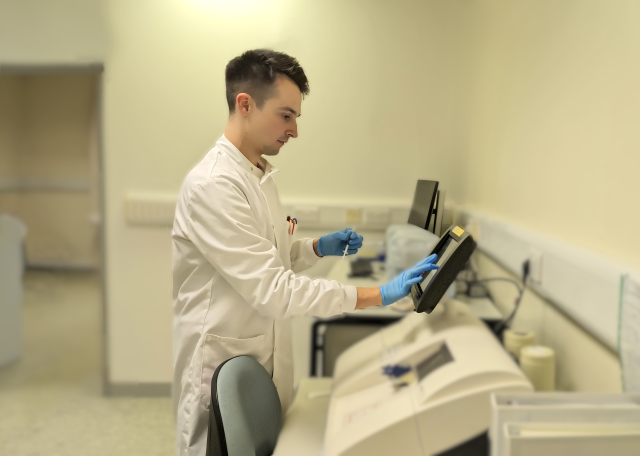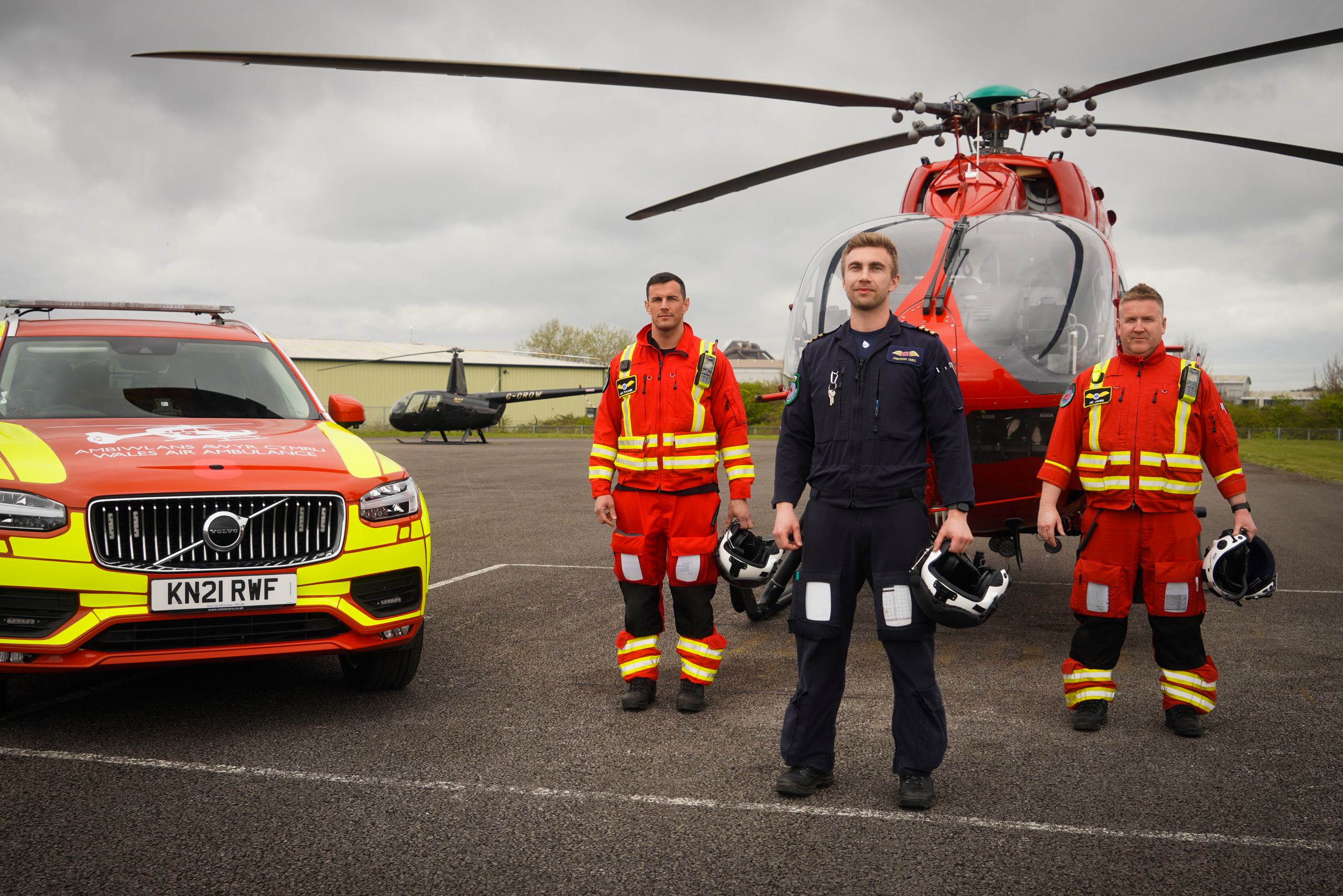
Welsh researchers investigating the use of cold-stored blood platelets in bid to save more lives
13 February
Researchers at the Welsh Blood Service are working in collaboration with the Emergency Medical Retrieval and Transfer Service (EMRTS) to explore whether storing blood platelets in the cold could improve patient outcomes and save more lives following severe traumatic injury.
Dr Jamie Nash, funded by Health and Care Research Wales, is working on the research study under the supervision of Dr Christine Saunders, Research Scientist at the Welsh Blood Service.
The research team said that platelets – which are key in helping to form blood clots and stopping bleeding – when stored in the cold could last for twice as long as those stored at room temperature and that they have the potential to be more effective at stopping bleeding.
Dr Nash likened platelets to ‘the plug of a bathtub’ and explained how this research was aimed at utilising cold-stored platelets for treating pre-hospital critical care patients.
He said: “It’s challenging to store and transport platelets in a pre-hospital environment as they need to be constantly shaken and kept at room temperature with a short shelf life of seven days.”
“In our study, we want to see if storing platelets in the cold is going to be an effective treatment for severe trauma patients in pre-hospital critical care treatment.”
Research, highlighted in a recent review, has indicated that storing platelets in the cold between two and six degrees Celsius allows platelets to be kept for 14 days without shaking. It is also reported in multiple studies that cold-stored platelets are more effective to stop bleeding which would be beneficial for patients with traumatic injuries.
Dr Nash said trauma causes approximately 17,000 deaths every year and has been the major cause of death for people under the age of 40 and the elderly in the UK, equating to roughly 46 deaths a day.
He continued: “We know from some research evidence that if critical care treatment was given to trauma patients before they arrived at the hospital, the number of deaths and the time of hospital stay could be reduced.”
“Time is critical when treating patients with major bleeding - if we are able to store the platelets in a cold box on an air ambulance operated by EMRTS, patients will have a more effective treatment which matches hospital practices for major bleeding.”
“We can improve patient care through a little change - putting the platelets in the cold - and that's all we have to do to potentially save lives.”
The research team said that the Welsh Blood Service’s ultimate aim is to support a clinical trial of cold-stored platelets, in the hope that it would become standard practice across the UK and internationally.
Marc Boggett, Head of Grants at Health and Care Research Wales, said: “We are thrilled to invest in this high-quality project which is the first study led by the Welsh Blood Service and funded by Health and Care Research Wales’ funding schemes. We hope that this important study, together with the diverse range of research we fund, will help change lives and make a real difference to people’s health and wellbeing.”
David Lockey, National Director of EMRTS, said: “Despite major advances bleeding is still a major cause of preventable death in our trauma patients. The effective pre-hospital use of platelets is another piece of the puzzle which has the potential to improve care and save lives. We are delighted to be involved in this project with the transfusion service.”
